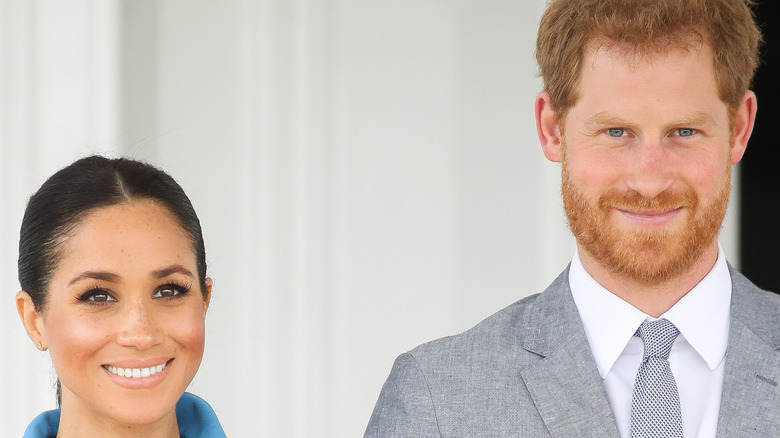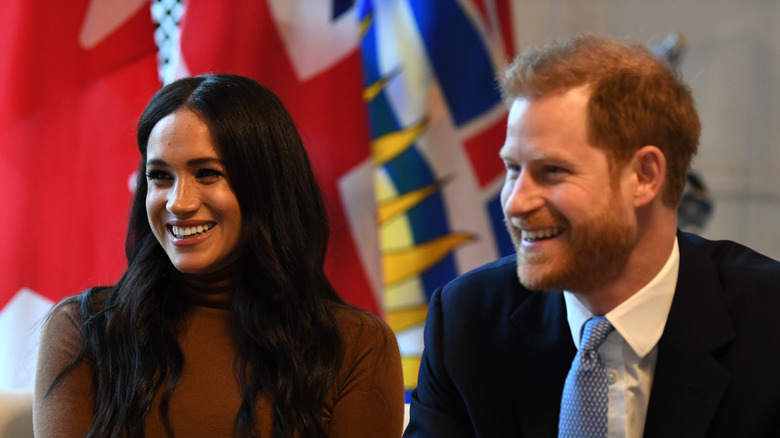Royal Expert Says Lilibet's Name Represents Huge Cultural Difference Between Harry And Meghan
Throughout the relationship between Prince Harry and Meghan Markle, Duke and Duchess of Sussex, the couple has faced cultural differences. In his book "Spare," Harry explains how their different customs got them in trouble with each other on occasion.
Harry describes an intense fight the pair had in his memoir that was centered around their cultural differences. "Meg said something I took the wrong way. It was partly a cultural difference, partly a language barrier, but I was also just over-sensitive that night. I thought: Why's she having a go at me?" he detailed (via Harper's Bazaar). "I snapped at her, spoke to her harshly—cruelly. As the words left my mouth, I could feel everything in the room come to a stop."
The couple remembered other traditions that got them in trouble, like Meghan's desire to hug when many Brits found it jarring, in their tell-all documentary series, "Harry & Meghan." Now, a royal expert has shared that their differences in culture came into play even while naming their daughter.
A royal expert believes Harry knew better than to name his daughter Lilibet
Prince Harry and Meghan Markle, Duke and Duchess of Sussex, named their youngest child Lilibet Diana, paying tribute to Queen Elizabeth II and Princess Diana. Lilibet was the queen's childhood nickname, which Prince Philip loved to call her. Many viewed this name as a sweet way to honor her royal family members. However, a royal expert shares that it is disrespectful, and Harry knew it from the start.
Royal expert Tom Quinn shared how the name showed a huge cultural difference between the royal couple in his book "Guilded Youth" (via Express). "[Harry] surely would have known that appropriating the monarch's beloved childhood nickname would be perceived by many as disrespectful and intrusive in a way that naming their daughter Elizabeth would have not been," he penned. "Meghan would never have thought naming her daughter Lilibet was anything other than a huge compliment; in the UK, it looks like an impertinence, and this is emblematic of many of Meghan's difficulties."
Quinn concluded that it was a clear cultural disconnect, and Harry should have known better.

